I am sometimes amazed by the simple hell Mormons give each other.
In recent years, a number of Mormon intellectuals have been spreading the meme that what matters in the church is not correct belief (orthodoxy) but correct practice (orthopraxy). In other words… they believe that it doesn’t really matter if you believe in the principles and doctrines that the leaders of the church teach. So long as you conform to the practices that the church can easily measure, such as paying tithes, obeying the dietary restrictions of the Word of Wisdom, attending church meetings, and holding regular family night, then you are a good, faithful Mormon and beyond reproach, even if you spend your time on the internet, and elsewhere, trying to convince others to adopt unorthodox beliefs that are clearly contrary to church teachings and leaders.
Let’s call this “Orthopraxy” meme what it is: Pharisaism. Those who practice Mormonism after this fashion are modern Mormon Pharisees.
Ah, the anti-intellectualism. I remember it well.
Mormons set a high bar for themselves. It takes a lot of constant effort over your whole life just to be considered basically ‘active’. Except that for this guy, it’s not only enough to identify with the Church, or just to do Mormon things. You also have to believe the right things. In Orwellian terms, you have to be “goodthinkful”. And to do otherwise is to open yourself up to criticism from the über-righteous.
I don’t identify with New Order Mormons, either. [Carson N corrects me on what NOMS are about — see below.] Okay, so you’ve noticed that there’s a lot of shift in “when a prophet is being a prophet”, or that the Book of Mormon has major factual issues. Maybe you want to believe that the Church is true, but you’ve noticed that it teaches wrong things. The right answer is not to erect complicated apologetic structures just so you can hang on to your precious belief by your fingernails. (Especially when people take it upon themselves to come and stomp on your fingers.) So-called ‘liberal Mormons’ may be engaging in convenient rationalisations to support their belief (and what Mormon doesn’t?), but at least they’ve noticed that Mormon doctrine has holes in it, and they’re trying to figure out an nuanced explanation around the conflict. This guy seems to think that Mormon doctrine is straight-forward, which suggests that he’s not really paying attention.
I do agree with him on one score: don’t be a hypocrite. If you know your belief system doesn’t make any sense and doesn’t jibe with reality, get out of it quick. If you’re in it, be in it! But then, it is a bit tricky to believe in Mormon orthodoxy when no one is able to tell you exactly what Mormon orthodoxy really is from year to year. Doctrines are subject to ad hoc modification or disavowal (define ‘Lamanite’ anyone?), and only later will someone say, “That? Oh, we quietly stopped talking about that decades ago!”
So how about this, orthodox Mormons — define orthodox Mormon belief, and then get back to us. Until then, stop giving other people a hard time over beliefs you haven’t got evidence for. Imaginary conflicts like this one remind me why I’m glad I left.
Bonus thought: If you want everyone in your church to be super-believing, then make it possible for less-believing people to leave without all the social consequences, like divorce and character assassination. You can’t have it both ways.
UPDATE: It seems I’m not talking about NOMs, though the linked author sure sounds like it. I’m probably describing ‘liberal Mormons’. Carson N points out that NOMs are not by and large apologists. Which was confirmed to me by reading the NOM Forum. They’re just as cynical and disbelieving as any RfM poster, except that they’re Trapped by the Mormons. Which I find unbelievably depressing. I hope Carson’s right that many NOMs use The Third Way as a transitional state, and that as soon as possible.
However, my eye-opening NOM experience makes me want to reiterate my Bonus Thought above: Let my people go. It should be okay to leave a religion without professional or social repercussions. It would only make the members who are left more committed, which ‘Brother Tiny Stones’ would no doubt like. Sorry to any NOMs who felt maligned.
One more thing: I don’t think the word ‘cult’ is a useful label, but if I had to describe the essence of cultiness, I’d say two things:
1. People in a cult aren’t forthcoming about their doctrines to those that aren’t initiated.
2. A cult won’t let you leave.
By these two guidelines, the Mormon Church starts looking a lot cultier the more NOM stories I hear.
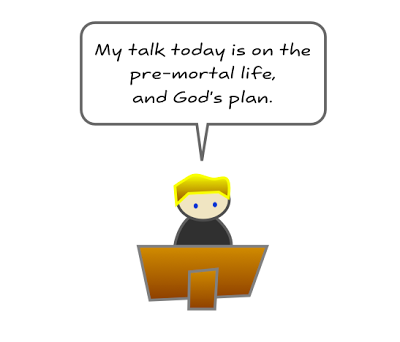

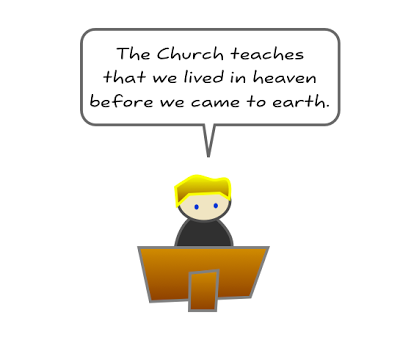
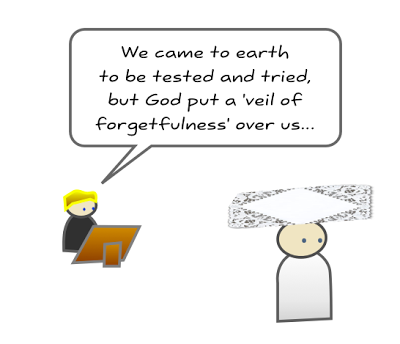
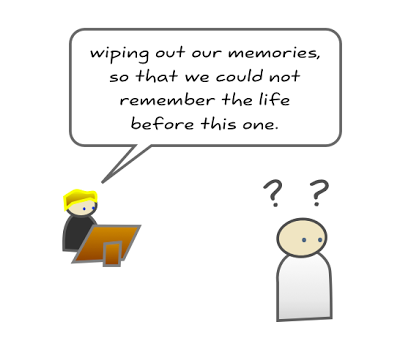
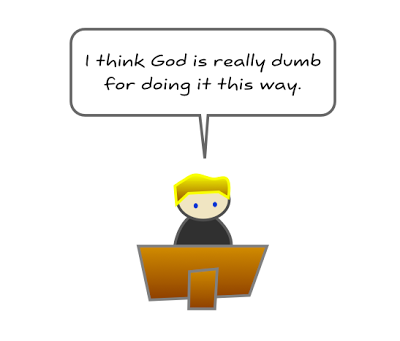
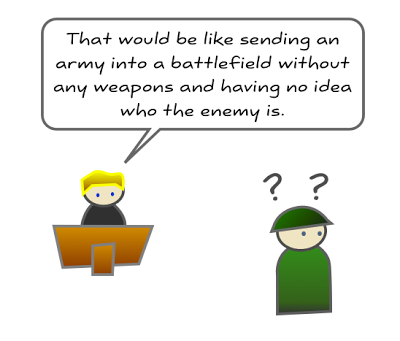
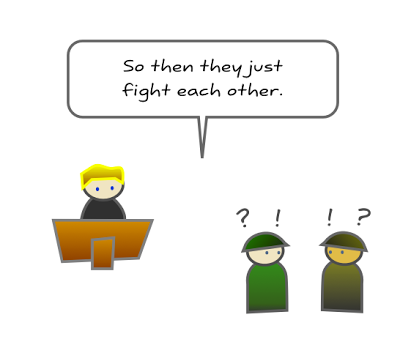
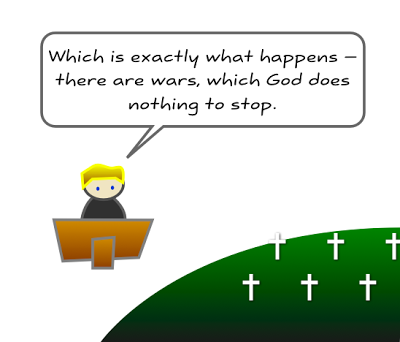




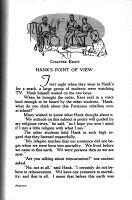
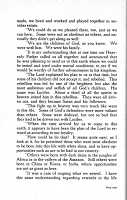
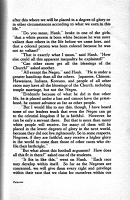
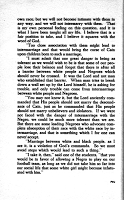

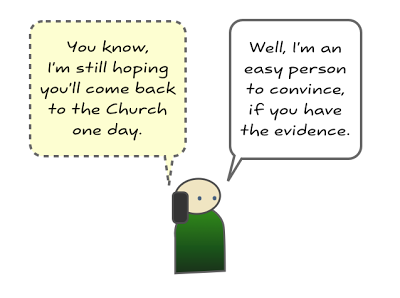

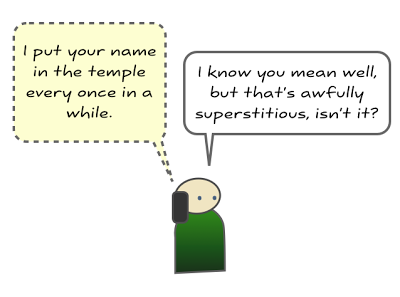
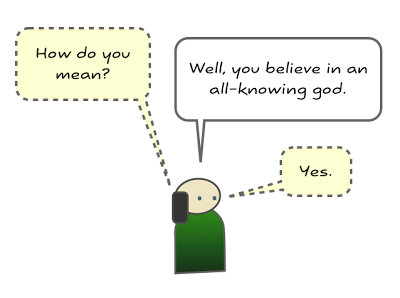
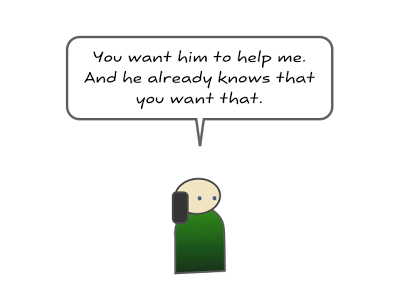

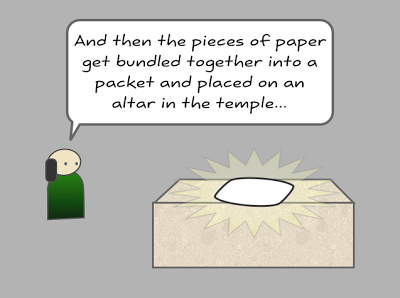
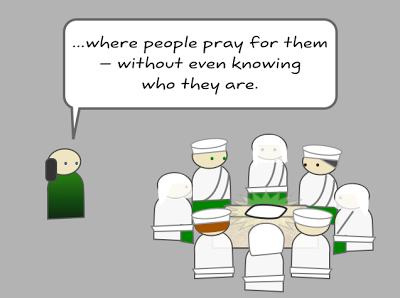
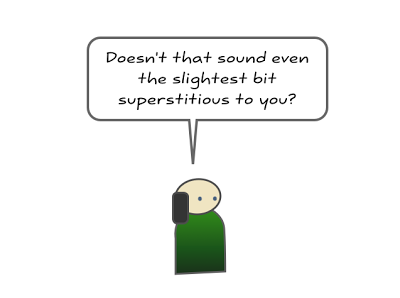
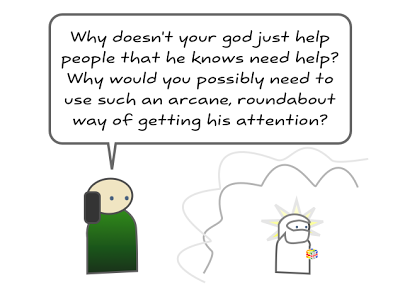
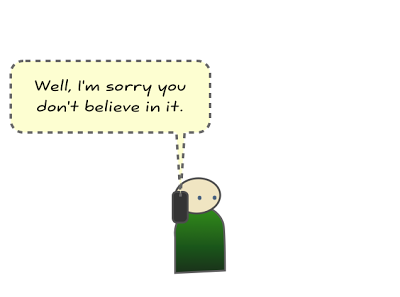
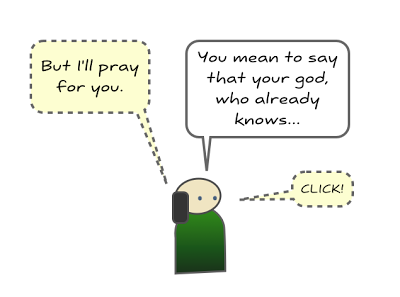



Recent Comments